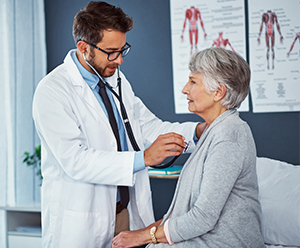 Do you remember the time when you first experienced feeling old? Maybe it was when the first gray hair appeared on your head or the first wrinkle around your eyes. Perhaps it was a slower recovery after a hard workout. As we get older our bodies and our minds change. They simply don’t work the way they did when we were in our 20s or 30s. The good news is that even though you’re going through changes you can find ways to adapt and boost your health. These five lifestyle changes can go a long way towards improving your overall well-being. Try to put them into action today.
Do you remember the time when you first experienced feeling old? Maybe it was when the first gray hair appeared on your head or the first wrinkle around your eyes. Perhaps it was a slower recovery after a hard workout. As we get older our bodies and our minds change. They simply don’t work the way they did when we were in our 20s or 30s. The good news is that even though you’re going through changes you can find ways to adapt and boost your health. These five lifestyle changes can go a long way towards improving your overall well-being. Try to put them into action today.
Stay Connected
Recent studies have found that the rate of cognitive decline was 70% lower with someone who was more socially active. Being socially active doesn’t mean staying on Facebook all day. Instead, you should make plans every week to see friends, take up a class or spend time volunteering. This is where you make genuine social connections that can benefit your wellness.
 Make Healthier Eating Choices
Make Healthier Eating Choices
This is the kind of advice that applies to anyone at any age but it is especially important for seniors. When it comes to making healthier eating choices “fresh” is the operative word. Not only should you be watching your portion sizes but should also try to scale back on the amount of processed foods that you eat on a regular basis. Fresh fruit and vegetables are something that should be part of your daily diet. You also want to check in with your doctor to find out if you have any deficiencies with regard to vitamins or minerals that you need to boost with specific foods.
Stay Active
Staying connected can actually help you stay active if you choose the right activity. The three best exercises to incorporate into your workout routine is walking, swimming or biking. Even doing the daily walk around the mall for 20 minutes would be a terrific boost to your health.
 Get Checked
Get Checked
Seniors have to be proactive when it comes to their health. That means regular health screenings and monitoring things like blood pressure, cholesterol, blood sugar, vision and hearing. Again, your doctor will be the best source for the kind of monitoring that you need to stay on top of. Don’t just wait for an annual physical to get checked!
Minimize Your Chance of Falling
Data compiled by the CDC finds that one out of every three adults age 65 and older has at least one significant fall each year. These types of falls are the major cause of hip fractures which can be extremely painful and debilitating. You can minimize your risk of falling by taking precautions around your house. Cut back on the clutter and tripping hazards like loose rugs or electrical cords. Anywhere that you need a little help such as in the bathroom for going downstairs make sure there are grab bars within reach. Also, if you are exercising on a regular basis then you will naturally be improving your balance.
Enjoy your retirement by staying healthy and active.







